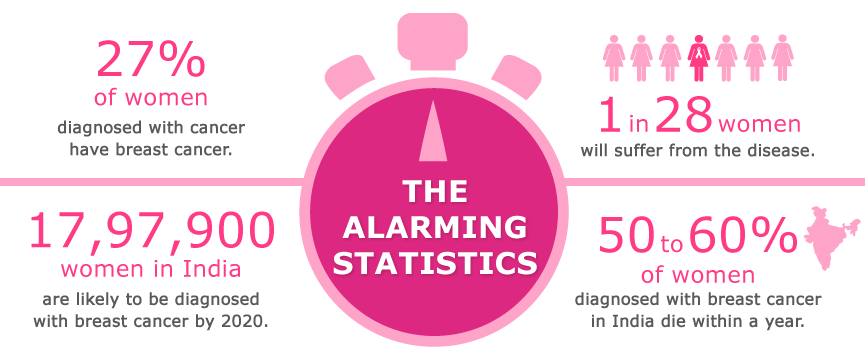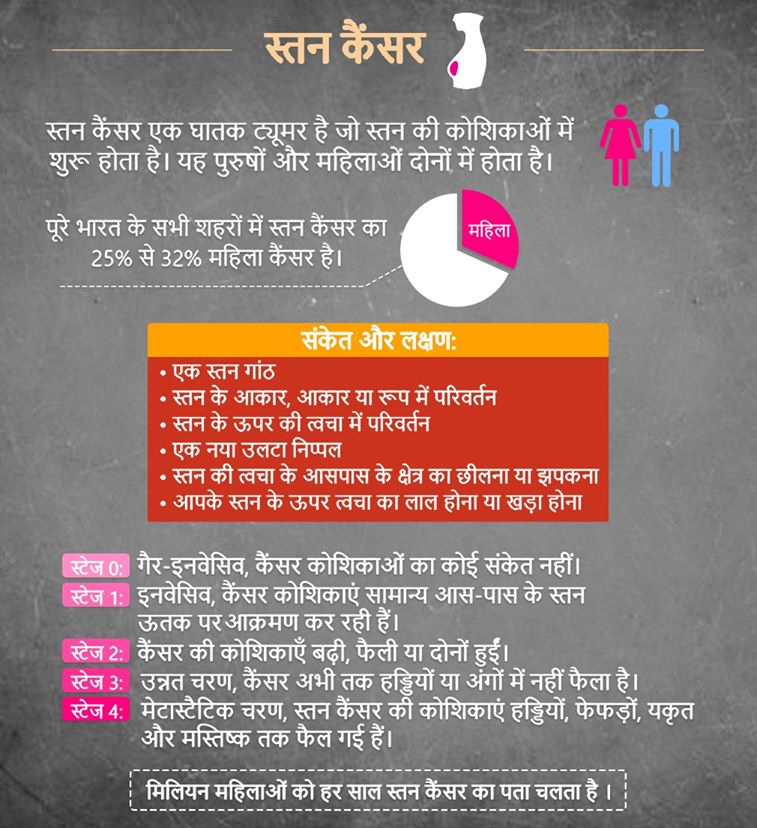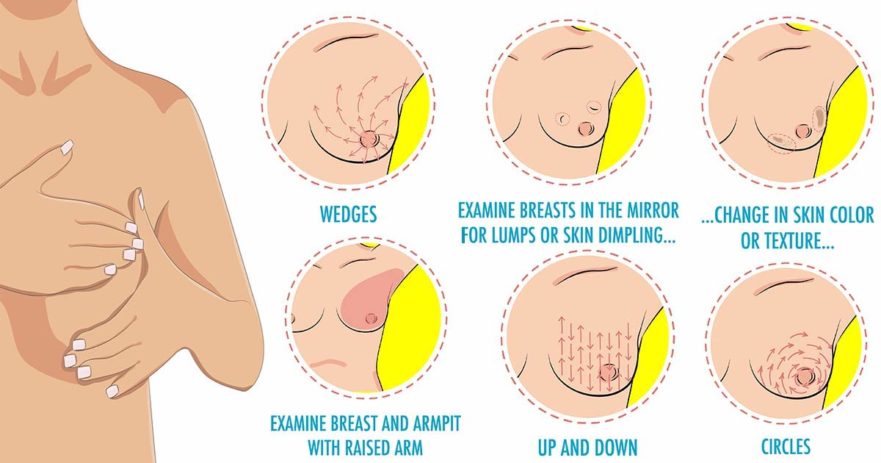Breast Cancer – Best treatment in Delhi and Gurgaon

Dr. Waseem Abbas
Cancer Treatment Specialist
Director Research, Max Hospital, Shalimar Bagh
How to contact me
Max Superciality Hospital, FC 50, C and D Block, Shalimar Place Site, Shalimar Bagh, New Delhi, Delhi 110088
Phone: +91 98112 42729
Email: drabbasdoc@gmail.com
Search this website
Common Cancers in India
Get a free E-consultation about lung cancer immunotherapy in Delhi
Early Detection for Successful Treatment of Breast Cancer
Breast cancer begins when breast cells grow out of control forming a mass called a tumor. It can be cancerous and benign. Breast cancer can present at an early stage or can be locally advanced. Which includes stages I, II, III the stage where breast cancer has spread other parts of the body such as lung, brain bones is called metastatic stage IV. The incidence of breast cancer has increased sharply over the past two decades. In Delhi, the APC increased from 0.91 to 5.31% over a period of 1988–2012 [6]. The projected number of cases for breast cancer in India in the year 2020 is 179,790 and this will constitute about 10% of all cancer science of breast cancer in India.
Types of Breast Cancer
- Ductal carcinoma in situ (DCIS)
- Invasive or infiltrating ductal carcinoma
- Invasive lobular carcinoma
- Papillary
- Tubular
- Mucinous
- Metaplastic
- Medullary
- Inflammatory breast cancer is a very aggressive cancer
Subtypes of Breast cancer
- Hormone receptor-positive – breast cancers expressing estrogen receptors, progesterone receptors compromising of 60-75% of all breast cancers. Such type of breast cancer have a very good prognosis and slow going and can be treated with hormonal therapy
- Triple-negative -these tumors do not express estrogen receptors, progesterone receptors, and HER2 and compromise 30% of invasive breast cancer. such type of cancer are more common among younger women, such type of breast cancer are seen in women with a mutation in BRCA1 or BRCA2 genes. Such types of breast cancer are very aggressive and have a high chance of reoccurrence HER2. they are called HER2 positive because such type of breast cancer is drawn by HER2 gene .they can be either hormone receptor-positive or hormone receptors negative and compromise of about 10-20%of all the breast cancers
Stages of Breast Cancer

Risk Factors of Breast Cancer
- Age is a Major Risk Factor
- Race and ethnicity
- Lifestyle factors
- Alcohol
- Food
- Physical activity
- Weight
- Socio-economic factors
- Radiation exposure at a young age
Signs & Symptoms of Breast Cancer
Breast Self-Examination

Treatment of Breast Cancer
Some treatments remove or destroy the disease within the breast and nearby tissues, such as lymph nodes. These include:
Surgery to remove the whole breast, called a mastectomy, or to remove just the tumor and tissues around it, called a lumpectomy or breast-conserving surgery. There are different types of mastectomies and lumpectomies.
Radiation therapy, which uses high-energy waves to kill cancer cells.
Other treatments destroy or control cancer cells all over the body:
- Chemotherapy uses drugs to kill cancer cells. As these powerful medicines fight the disease, they also can cause side effects, like nausea, hair loss, early menopause, hot flashes, and fatigue.
- Hormone therapy uses drugs to prevent hormones, especially estrogen, from fueling the growth of breast cancer cells. Medicines include tamoxifen (Nolvadex) for women before and after menopause and aromatase inhibitors including anastrozole (Arimidex), exemestane (Aromasin), and letrozole (Femara) for postmenopausal women. Side effects can include hot flashes and vaginal dryness. Some types of therapy work by stopping the ovaries from making hormones, either through surgery or medication. Fulvestrant ( Faslodex) is an injection that keeps estrogen from attaching to cancer cells.
- Targeted therapy such as fam-trastuzumab-deruxtecan-nxki (Enhertu), lapatinib (Tykerb), pertuzumab (Perjeta), and trastuzumab (Herceptin) prompt the body’s immune system to help destroy cancer cells. These medicines target breast cancer cells that have high levels of a protein called HER2. T-DM1 or ado-trastuzumab emtansine (Kadcyla) is a medicine that combines Herceptin and the chemotherapy medicine emtansine to target HER2 positive cancer cells. Abemaciclib (Verzenio), palbociclib (Ibrance), and ribociclib (Kisqali) are often used with an aromatase inhibitor or fulvestrant (Faslodex), in women with certain types of advanced cancer.
- Immunotherapy uses the body’s own immune system to target cancer. The drug atezolizumab (Tecentriq) has been approved as first-line treatment for those with triple-negative breast cancer which has spread.

Cure rates
Breast cancer is a curable disease if diagnosed in time and treated properly. Cure depends on the stage of Breast cancer, hormonal status, and age of the patient.Dr. Abbas is a young scientist and is dedicated to research in the field of cancer. Has published several national and international papers. And is an eminent teacher and is highly regarded for his experience in research especially on Breast cancer.
